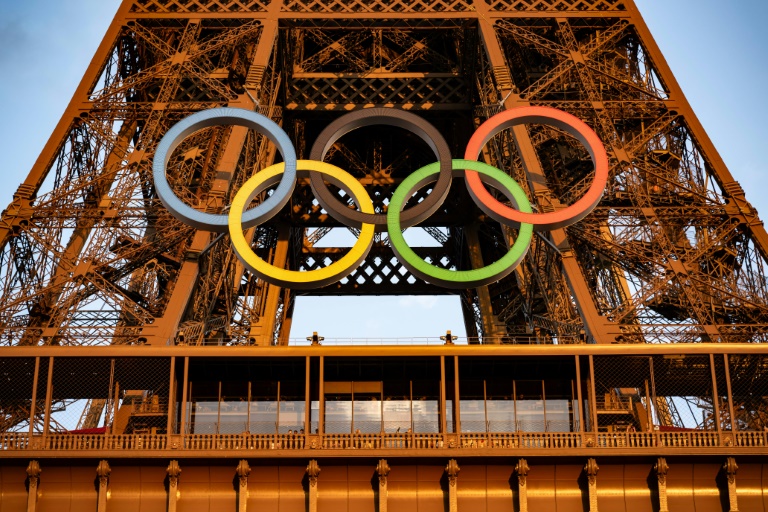
France estimates it will cost around 9 billion euros to host the Paris Olympics, but government officials have said the financial impact could be “psychological” rather than economic.
Ahead of the Olympics opening on July 26, ministers and financial commentators are crunching figures to estimate the costs and benefits of the sporting event.
So far, French officials have estimated the cost of the Paris Games to be around 9 billion euros ($9.5 billion), but an official figure will take time to be confirmed.
Costs are always difficult to predict or ascertain.
Japan's Board of Audit has reportedly said the cost of the Tokyo Olympics, which was postponed by a year to 2021 due to the coronavirus, was about $12.9 billion.
The Greek Finance Ministry puts the cost of the Athens 2004 Games at $9.1 billion, but some independent estimates put it closer to $15 billion. The London 2012 Games cost up to $15 billion.
The Paris organizing committee has a budget of around 4.4 billion euros, backed by ticket sales, sponsors and money from the International Olympic Committee (IOC), with the same amount going to Solideo, the public company that built the Olympic Village north of the French capital.
But the final cost will depend on the expenditure of Olympic bonuses on subway drivers, police and emergency personnel, as well as general security costs.
The government this week allocated an extra 33 million euros to Paralympic organisers, who are struggling to sell tickets.
The government and local authorities have so far spent around 2.4 billion euros on the Paris Olympics, mainly on construction costs, but the government auditor general estimates that the final state cost could reach 5 billion euros.
“Direct government involvement will be relatively limited,” said Bruno Cavallier, chief economist at Oddo BHF financial services group, adding that the Olympics “will not dramatically change” France's roughly $3.2 trillion public debt.
— “Psychological” effects —
According to the Centre for Sport Law and Economics (CDES), which has been monitoring the Paris Games for the IOC and Paris 2024 organisers, the Games will bring economic benefits of between 6.7 billion and 11.1 billion euros to the Paris region.
But the company added that these benefits would be spread out over 20 years.
Consultancy Asteres estimated in February that the Olympics would raise tax and social revenues by 5.3 billion euros.
“Countries that host the Olympics or the FIFA World Cup rarely derive positive economic or even social benefits from the rush to invest massive public funds in new stadiums and public infrastructure,” Deutsche Bank said in a study this month.
The report said short-term gains in investment and employment would also be “limited” unless host countries were in recession.
For François Villeroy de Galhau, governor of the Bank of France, the Paris Olympics will have a greater “psychological” impact than economic one.
But he said that if the Olympics could improve France's image around the world, it could ultimately bring new investment.
–“Jobs were created.”–
In the short term, some companies are already looking to profit.
Léa Marie, managing director of lingerie maker Le Slip Français, said the company was producing thousands of extra pieces of underwear, swimsuits, pyjamas and other items in Olympic colours.
“The scheme has created jobs in our factory and at 80 of the company's subcontractors,” she said.
Companies linked to the Olympic construction boom are also benefiting.
According to CDES, construction and renovation companies expect the Olympics to increase revenue by up to 3 billion euros.
Tourism is expected to earn up to 3.6 billion euros from an expected Olympic attendance of 15 million people, including 2 million from abroad.
Odd BHF predicted that media, leisure, beverages and alcohol, consumer goods and transport companies would benefit from the Olympics.
December/dga/cto/tw/bc

